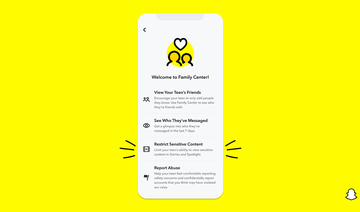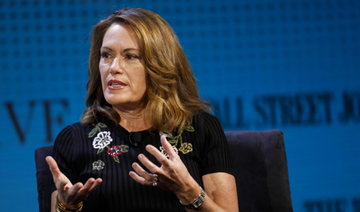LONDON: An Israeli journalist has claimed he was threatened by senior security officials to ensure he dropped his investigation into claims that Mossad had intimidated a former prosecutor of the International Criminal Court.
In an article published on Thursday, Gur Megiddo, an investigative reporter at Haaretz, claimed that Mossad officials, a few years ago, sought to block any reporting on the matter using intimidating tactics.
This comes in the wake of a report by The Guardian earlier this week that Mossad’s former head Yossi Cohen had tried to intimidate then-ICC prosecutor Fatou Bensouda. Cohen had allegedly attempted to stop Bensouda from investigating Israel for war crimes and crimes against humanity in the occupied Palestinian territories.
That investigation, launched in 2021, culminated last week in Bensouda’s successor, Karim Khan, announcing he was seeking an arrest warrant for Israel’s Prime Minister Benjamin Netanyahu over the country’s conduct in its war on Gaza.
“At the beginning of 2022, I attempted to contact the former prosecutor through a third party who knew her,” Megiddo wrote.
“Bensouda never responded to the approach, but days after the attempt, when I wanted to publish the story, my phone rang and on the other end of the line was the voice of a senior security official. ‘Can you come to see me tomorrow?’ he asked.”
The journalist claimed that during the meeting with two officials, he was told to drop the case or face the “consequences” of his actions.
“It was a polite conversation, a polite threat,” Megiddo wrote. “The tone was calm, the content much less so. I was explained that if I publish the story, I would suffer the consequences and get to know the interrogation rooms of the Israeli security authorities from the inside.
“In the end, it was made clear to me that even sharing the information ‘with my friends abroad,’ referring to foreign media outlets, would lead to the same results,” he added.
Megiddo’s revelations appear to confirm The Guardian’s report, which was part of a wider investigation. This was conducted by the outlet with the Israeli-based magazines +972 and Local Call on Israel’s use of its intelligence agencies to allegedly surveil, hack, pressure, smear, and threaten senior staff at the ICC to derail its inquiries relating to Palestine.
He explained that after the meeting, he “took the threats very seriously” and decided to publish a redacted version of the story he was working on, reporting only on Cohen’s trips to the Congo.
He left out the part about the agency’s effort to persuade Congo’s president, Joseph Kabila, to assist with efforts to pressure Bensouda and disrupt the proceedings in The Hague.
The revelations come amid a backdrop of declining media freedom in Israel. The +972 magazine and the Movement for Freedom of Information in Israel reported that in 2023, the military censor barred the publication of 613 articles — a record annual number since +972 began collecting data in 2011.
Earlier in May, authorities shut down the offices of Qatar’s media outlet Al Jazeera after passing a highly controversial law granting Israel the power to temporarily close foreign media outlets if deemed a threat to security.
Last week, equipment belonging to The Associated Press was briefly seized, prompting an intervention by the US government.



























